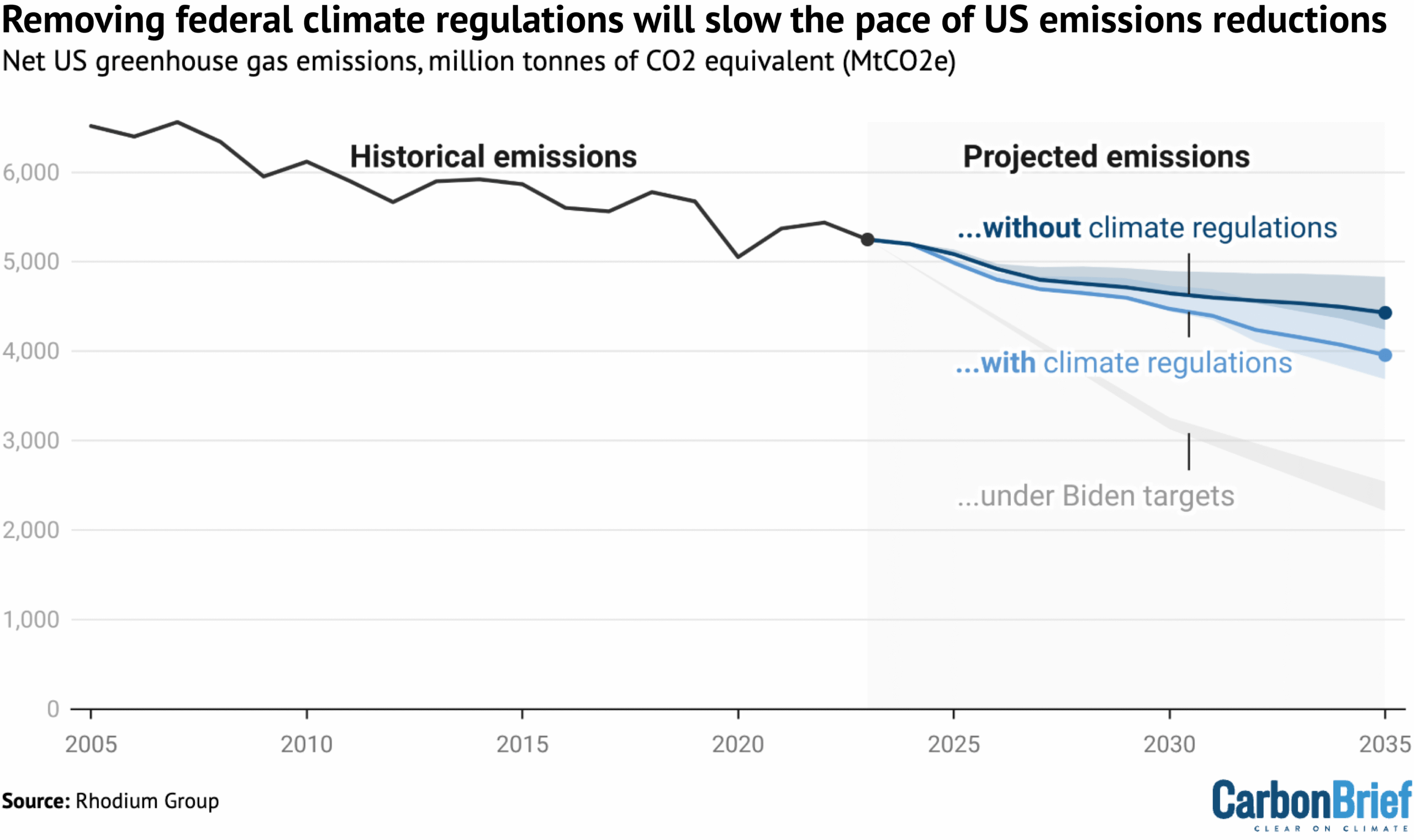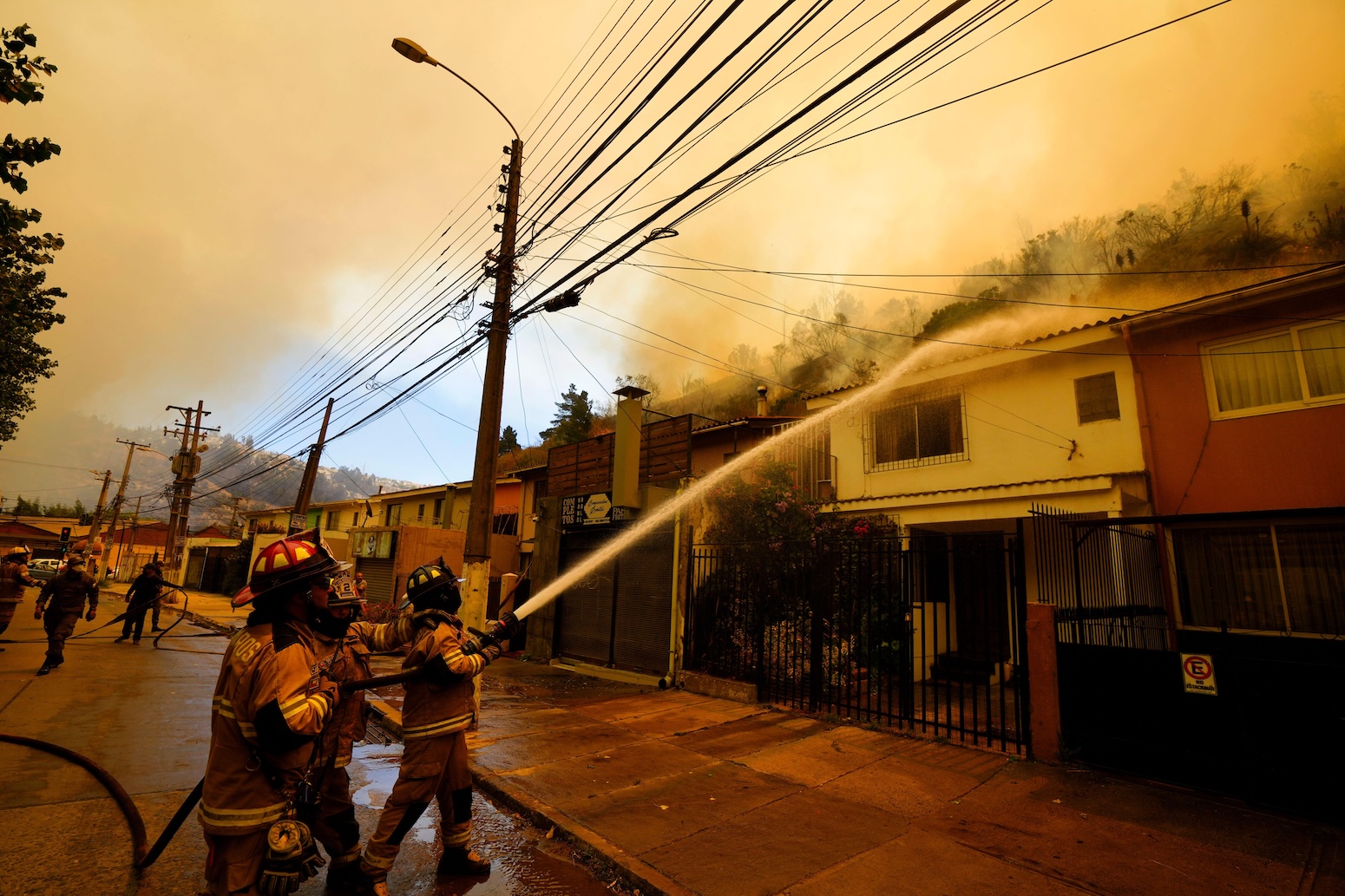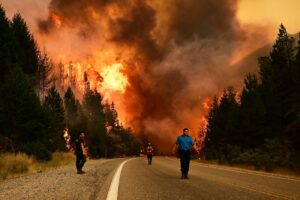
Photo by Andrea Piacquadio
Episode 91: Good News
In this episode we celebrate some of the good news the CCR team have found for you. Lily Russian, Karina Taylee, Horace Mo, and Peterson Toscano will each share with you good news stories about what is happening in the climate change sphere. You will also hear good news about what you can expect from our show in 2024. Did someone say True Crime Climate mini series??
 Lily is a junior at Trinity College in Hartford, Connecticut, studying Political Science and Environmental Science. Karina is from Miami, Florida, and started volunteering for CCL in 2021 before becoming an intern this fall. She has just finished her graduate studies. And Horace, a recent graduate from the University of Michigan, has returned to his home in Chongqing, China.
Lily is a junior at Trinity College in Hartford, Connecticut, studying Political Science and Environmental Science. Karina is from Miami, Florida, and started volunteering for CCL in 2021 before becoming an intern this fall. She has just finished her graduate studies. And Horace, a recent graduate from the University of Michigan, has returned to his home in Chongqing, China.
From Coal Power to Green Energy
Coal mines are bad for the environment. At least that is what we have always heard. Well, Lily tells us about a revolutionary project in Gateshead, England, which shows the remarkable potential of using abandoned mines to reduce carbon emissions. Lily says, “The ground-breaking project uses the warm water from the tunnels to heat hundreds of homes and businesses in the former coalfield community.”
In this episode, you will learn more about this first-of-its-kind initiative that demonstrates the potential of harnessing the Earth’s natural heat stored in flooded mines to create clean, renewable energy. If you want to dig deeper, check out this article.
High Seas High Hopes: Treaty Aims to Protect Two-Thirds of Our Unprotected Ocean
If you’re passionate about protecting our oceans, Karina has some good news for you! Deep beneath the waves, a silent struggle unfolds. The high seas, which cover two-thirds of the world’s oceans, remain unprotected, vulnerable to human activity.
A beacon of hope shines in the form of the High Seas Treaty, currently navigating its way through international ratification. This historic agreement aims to establish marine protected areas, safeguarding vast regions from damaging activities like oil drilling.
“These regions will be kind of like gigantic National Parks, but in the ocean.” – Karina Taylee
If you want to learn more about the High Seas Treaty, listen to the episode and read this article.
“Ocean Breakthroughs” Initiative: World Leaders Unite for the Oceans
Imagine 400 global leaders and changemakers – conservation experts, business representatives, local communities, and indigenous groups – uniting to address the critical issue of ocean health.
 Horace tells us about The International Union for Conservation of Nature (IUCN) Leaders Forum, a platform for innovative solutions and collaborative action. The IUCN facilitated the launch of “Ocean Breakthroughs,” a global initiative aiming to revitalize five key marine sectors: conservation, renewable energy, shipping, food production, and coastal tourism. This ambitious plan seeks to reduce global greenhouse gas emissions by up to 35% by 2050, demonstrating a profound commitment to ocean sustainability and climate action.
Horace tells us about The International Union for Conservation of Nature (IUCN) Leaders Forum, a platform for innovative solutions and collaborative action. The IUCN facilitated the launch of “Ocean Breakthroughs,” a global initiative aiming to revitalize five key marine sectors: conservation, renewable energy, shipping, food production, and coastal tourism. This ambitious plan seeks to reduce global greenhouse gas emissions by up to 35% by 2050, demonstrating a profound commitment to ocean sustainability and climate action.
If you have a Good News Story you want to share, email us: radio @ citizensclimatelobby.org
Take a meaningful next step
Each month we will suggest meaningful, achievable, and measurable next steps for you to consider. We recognize that action is an antidote to despair. If you are struggling with what you can do, consider one of the following next steps.
1. Podcast Engagement
- To celebrate 91 consecutive months of podcasting, share our show on your social media and with your friends. If you listen on Apple Podcasts or Spotify, we would LOVE a review.
2. Carbon Fee and Dividend Movement (For College Students)
- Explore the Carbon Fee and Dividend movement, which advocates for effective climate policies. They creatively engage college students, faculty, and staff in their campaigns. This movement also facilitates direct connections with lawmakers
- Utilize the hashtag #carbonfeeanddividend on social media.
- Learn more at CFDmovement.com and follow them on Instagram @carbonfeeanddividend.
3. Citizens’ Climate Lobby National Youth Action Team (For Middle and High School Students)
- Students can get involved with the CCL National Youth Action Team. Participate in initiatives such as the Great School Electrification Challenge.
- Visit Youth.CitizensClimatelobby.org to learn more and follow them on Instagram @CitizensClimateYouth.
4. Additional Climate Action Resource (For anyone at any time)
- For those seeking more ways to take action, explore the action page at CCLusa.org/action.
Listen Now!
Listener Survey
We want to hear your feedback about this episode. After you listen, feel free to fill in this short survey. Your feedback will help us as we make new decisions about the content, guests, and style of the show. You can fill it out anonymously and answer whichever questions you like.
You can hear Citizens’ Climate Radio on:
Also, feel free to connect with other listeners, suggest program ideas, and respond to programs in the Citizens’ Climate Radio Facebook group, on X (FKA Twitter) @CitizensCRadio, Instagram @CitizensClimateRadio, LinkedIn, or TikTok @ClimateChangePodcast. You can reach us by email: radio @ citizensclimateradio.org. Call our listener voicemail line: (619) 512-9646. +1 if calling from outside the USA.
Read the Transcript
Episode 91 Climate Change Good News
Peterson Toscano: Welcome to Citizens’ Climate Radio–Your Climate Change Podcast. (music) In this show we highlight people’s stories, we celebrate your successes, and together we share strategies for talking about climate change. I am your host, Peterson Toscano. Welcome to episode 91 of Citizens’ Climate Radio
A project of Citizens’ Climate Education.
This episode is airing on Friday December 22, 2023
Today’s show is filled with Good News. As a climate advocate, I need to hear good news stories. To find these stories, I have to look beyond traditional news sources. Yes, we must hear about the dangerous impacts of climate change. Journalists also need to bear witness to the failures of governments when they do act on climate change. And in the midst of all that, climate advocates like you and me also need to hear about successes and breakthroughs.
This episode we celebrate some of the good news that my team and I have found for. Lily Russian, Karina Taylee, Horace Mo, and I will each share with you good news stories about what is happening in the climate change sphere. I will also share with you some good news about what you can expect from our show in 2024. We have special projects coming your way.
We begin with a Good News story from Lily Russian. Lily served as a CCR Team Member intern this semester.
Lily Russian:
What can we do with the world’s abandoned coal mines? A town in the UK might just have the answer. In Gateshead England, an old coal mine has been providing green energy for the last six months. The ground-breaking project uses the warm water from the tunnels to heat hundreds of homes and businesses in the former coalfield community. The project is the UK’s first large-scale mine water heating network. It shows the potential of using abandoned mines to reduce carbon emissions.
After decades of neglect, Britain’s abandoned coal mines gradually flooded. Warmed by the earth, this water could become a key part of our renewable energy future. Geologists estimate that Britain’s mine shafts contain over 2 billion cubic meters of warm water. I mean that is a lot of water. This makes them one of the largest untapped sources of clean energy in the country.
In the United States alone, there are almost 50,000 abandoned coal mines. This innovative project in the UK demonstrates the remarkable potential our world has to transform these relics of the past into valuable assets for a green future.
But how does it work? Water in mines gets hotter the deeper it goes. At depths of 1 kilometer, water can reach up to 40 degrees celsius, that’s 104 degrees fahrenheit! The steaming hot water is harnessed through drilling boreholes, which are similar to wells, to bring it to the surface. The water is then pumped up from the mine and passed through heat pumps, which raise its temperature even higher. The hot water is then piped to buildings, where it is used to heat them. Once the water has cooled down, it is pumped back into the mine system to be heated up again.
I love what John McElroy has to say about this solution. He is a cabinet member for the environment and transport at Gateshead Council. He says: “What we have in Gateshead is a legacy from the days of the coal mines, which was dirty energy, “now we are leading the way in generating clean, green energy from those mines.”
To learn more about this project, visit gateshead dot gov dot uk. I put a link in the show notes for you over at cclusa.org/radio.
If you have a good news story you want to share, contact us. The email address is radio @ citizensclimatelobby.org
Peterson: Thank you Lily! Although Lily Russian’s internship is officially over, you will hear her voice a lot in 2024. Later in the show I will tell you about the special limited series Lily, Horace, and I have been creating for you.
Speaking of Horace, he has put together a good news story for you.
Horace: Hi there!, this is Horace, here with the Good News on climate change! Are you concerned about the impact of global warming on marine ecosystems? Do you worry about how ocean biomes are affected by climate change?” If you are, I am on the same side with you. But, folks, don’t panic yet! I have an uplifting message about protecting the world’s oceans for you today.
I want you to first imagine a gathering of 400 world leaders and changemakers. I mean wouldn’t be great if they came together to do something about the oceans. These leaders and changemakers include but are not limited to conservation experts, business representatives, local communities ,and indigenous people’s groups.
The good news is such a meeting just happened! On October 11, 2023, the IUCN Leaders Forum hosted a two-day conference for a diverse group of leaders and changemakers in Geneva, Switzerland to discuss the future of global oceans.
So, what is the IUCN Leaders Forum? Well, IUCN is short for The International Union for Conservation of Nature. The IUCN Leaders Forum thus brings global leaders together to discuss innovative solutions and catalyzes impactful action in nature conservation and sustainability.
At the end of this year’s forum, President Razan Al Mubarak proudly announced the launch of “Ocean Breakthroughs.” It is a global marine conservation and climate action initiative. The Ocean Breakthroughs aim to improve 5 key ocean sectors: marine conservation, ocean renewable energy, shipping, aquatic food, and coastal tourism. Sounds exciting, right? Moreover, successfully implementing Ocean Breakthroughs will help reduce global greenhouse gas emissions by up to 35 % by 2050.
I believe all participants at the forum set a great example to mobilize global support in saving world oceans. The impact will further raise public attention for the major and annual international climate meeting, The United Nations Climate Change Conference. (Hopefully the conference can further scale up the effort of saving oceans. I am sure with our determination and an increasing sense of urgency to take climate action, more climate change good news will transpire in the future!
As I am wrapping up with our good news story today, If you want to learn more about this story, you can always visit iucnleadersforum.org. If you have a good news story to share with the public, please email us at Radio@CitizensClimatelobby.org.
Thank you Horace. I am pleased to announce that Horace will continue his internship with Citizens’ Climate Radio for another season. Horace is a recent graduate with B.A in Environmental Studies from the University of Michigan. He now lives in Chongqing, China and works for a hoisting machinery manufacturing company. In his spare time, Horace enjoys weightlifting, watching sports, nature sightseeing, and reading history
Our next Good News Story comes from COP28. I don’t know about you, but I sometimes feel cynical about these gatherings of nations, non-governmental organizations, and corporations. The process often feels convoluted and slow moving. Many young people express their extreme frustration and displeasure with the adults who are not doing enough to address the causes and impacts of climate change.
According to a Wall Street Journal article and many other news sources, this year’s COP has resulted in a historic step forward.
In an unprecedented move, nations have agreed for the first time to begin the transition away from fossil fuels. This historic decision marks a pivotal moment in our global climate narrative.
The United Arab Emirates, under the leadership of Sultan Al Jaber, has successfully brokered a compromise. This deal, born from all-night talks, is not just a statement but a robust action plan to hasten our journey towards net-zero greenhouse gas emissions by 2050.
For the first time, a U.N. climate agreement explicitly calls for governments to cut back on all fossil fuels. This is a significant shift, especially considering the past resistance from major fossil fuel producers and rapidly developing nations.
In fact, this is the first time one of these agreements has actually included the words fossil fuels in them and I…
Tony: Coming through, coming through.
Peterson: Tony? Tony Buffusio
Tony: Yeah, this Tony Buffusio from the Bronx
Peterson: Um, great to see you, but I’m actually in the middle of telling a good news story.
Tony: HA! You call that good news?!?
Peterson: Well, Yeah, it is a step forward. It’s historic.
Tony: Oh yeah, I tried plain no-fat Greek yogurt for the first time this week, and it made me want to puke. A lot like this good news story of yours.
Peterson: You sound about as sour as that yogurt
Tony: Listen Peterson, this is a group that almost 30 years ago set themselves up with big plans to tackle greenhouse gas emissions leading to global warming. All this time and they finally said out loud what everyone already knew. Extracting and burning Fossil Fuels is the cause of climate change! I know slow and steady wins the race but this is like watching a snail moving through a pile of jello with two other snails on its back!
Peterson: I hear you. This decision hasn’t come without its critics. Some environmental groups worry about potential loopholes for the fossil fuel industry. But it’s important to acknowledge the strides taken, even as we recognize the journey ahead.
Tony: Sorry I’m not buying it
Peterson: Ok but what do you think we should do?
Tony: What do I think? I’ll tell you what I know. When people get off their butts and talk to their members of congress, it makes a difference. Not just one person. Not just a dozen, but thousands and thousands in every congressional district in the USA and beyond telling lawmakers we need smart solutions NOW.
Peterson: You mean like a CBAM?
Tony: Carbon Border Adjustment Mechanism. Exactly. You know when I first heard about CBAM I thought it had something to do with a holiday meal.
Peterson: What do you mean, like some imported food might now be available.
Tony: No, not that. It’s like when you sit down for a big Buffusio family meal. I eat so much, I can’t move. I get all gassy. I got to lossen my belt or put on sweatpants. It is my post-meal Carbon Border Adjustment Mechanism.
But no, a CBAM is a fee placed on imports of goods that are carbon intensive. The EU is working on this right now. We need to get in that game.
Peterson: Yes, I hear you. There is a lot we can do without the UN or global agreements. The USA has vast power in the world.
Tony: That’s why we need to talk to the people who make the laws. They know it has to happen, and we have great solutions like CBAM, carbon fee & dividend, and permitting reform.
Peterson: And those ideas are really getting traction. More and more laws are being introduced by Republicans and Democrats.
Tony: So yeah, if you really want to become part of something historic, visit CCLUSA.org/action. Today you can do something significant, and you don’t even have to fly all the way across the world to do it!
Peterson: That website again is CCLUSA.org/action. Thank you, Tony for crashing my good news story.
Tony: Yeah well someone has to keep an eye on you.
Coming up: more good news PLUS I reveal big plans ahead for Citizens’ Climate Radio. Stay Tuned
[Adverts]
Peterson: You already heard from Lily and Horace. Now we get Good News from Karina Taylee. But first congratulations are in order. Over the last year has been working on an accelerated Master’s degree in Global Strategic Communications with a certificate in Science Communications. This month she graduated and earned her degree!
Here is Karina with her good news story.
Karina: Hi everyone, I’m Karina with a good news story for you! I’m from Miami, FL and I grew up near the ocean. Protecting our seas is really important to me so I was really excited when I heard about the High Seas Treaty currently in the United Nations. The high seas are the parts of the ocean that are not controlled by any country. They cover two-thirds of the world’s oceans. How much of that do you think is protected? Surely two thirds of it, right? Maybe half? Actually, it’s only about 1% of that is currently protected.
Luckily, this treaty is trying to do something about that. If the treaty comes into effect, large parts of the ocean will gain protection from oil drilling and other damaging human activities. These regions will be kind of like gigantic National Parks, but in the ocean. The High Seas Treaty will also regulate how countries and companies take the ocean’s resources so they are used more equitably. Lastly, it will update how countries conduct environmental impact assessments.Essentially, there will be a new and improved way to record what’s happening in the high seas. The result? A big win for the ocean and its wildlife.
This treaty has been in the works for almost two decades! Last Spring, the UN finally decided on the terms of the agreement. It was then translated into the six official languages of the UN. Earlier this Fall, 76 countries and the European Union signed it! !That’s 103 countries and there’s still time for more countries to sign it!
Although these countries signed the High Seas Treaty, 60 nations still need to ratify it before comes into effect. Each country has a different ratification process, so it will take some time. Fortunately, the treaty performed way better than expected, and that makes me very optimistic.
This global commitment to protect the ocean shows that most of the world wants to see the high seas flourish. Personally, I’m excited that I get to keep enjoying the ocean here in Miami. I’m hopeful that future generations will have that same privilege.
Want to learn more about the latest status of The High Seas Treaty? Visit treaties.un.org I put this link in the show notes for you.
Peterson: Thank you, Karina. And before we end I have good news for you about Citizens’ Climate Radio. After 91 consecutive monthly episodes without missing a single month, we will take a very brief pause. In February we will start Season Two of Citizens’ Climate Radio. Yeah, I know 7 years is a very long season. In 2024 my team and I will also premiere two special limited series. Karina Taylee and I have been working on a Spanish language podcast called Voces del Cambio. In it we will highlight countries and regions in Latin America. We will explore a particular problem related to climate change and then share creative solutions that are proposed or enacted to address the problem. The show will be completely in Spanish. In each episode we will direct listeners to Climavivible.org. This is CCL’s Spanish language website. Voces del Cambio will air on a different podcast channel, and we will be sure to share those details when the show premieres.
The other limited series takes a wildly different approach to climate change. Team member Lily Russian inspired us to consider climate change as a crime and to explore it through the lens of a true crime podcast. I find the true crime genre so compelling. But climate change is huge! How on earth would we be able to investigate it as a crime? We decided to focus on a special and pivotal time in history from about 1997 to 2007. During this period there was a dramatic and dangerous shift in the US political landscape. There has been bipartisan agreement that global warming posed a genuine risk to humans and the planet. Many prominent figures on the right and the left took part in national campaigns to raise awareness. Then less than 10 years letter, everything changed. Suddenly half the lawmakers in the country refused to even acknowledge climate change was real. What happened? Who is responsible? Turns out the answers are not as straight-forward as you might imagine. Lily Russian, Horace Mo, and I have been investigating this story, and in 2024 we will release our limited True Crime Climate Change podcast! Plus we will continue to produce our monthly show with guests and topics that typically do not get covered by the media. We will continue to help you in your own climate work by giving you expert tips and insights to climate communication. We will highlight solutions, and most of all we will cheer you on as you do this vital work. Thank you for all you do.
AND If you have Good News to Share, we would love to hear about it. Please Email us radio@citizensclimatelobby.org. That is the correct email address. Radio at CitizensClimateLobby.org
Closing
Thank you for joining me for Episode 91 of Citizens’ Climate Radio
If you like what you hear, and you want to support the work we do, visit CitizensClimateEducation.org to learn how you make a tax deductible contribution.
Here at Citizens’ Climate Education, we want you to be effective in the climate work you do. So we provide training, local group meetings and many resources. They’re all designed to help you build the confidence and skills needed to pursue climate solutions. Find out how you can learn, grow, and connect with others who are engaged in meaningful work visit CCLusa.org, that’s CCLusa.org. We want to hear your feedback about this episode. After you listen, feel free to fill a short survey. You will find a link to the survey in our show notes, or just email me, radio @ citizensclimatelobby.org
Citizens’ Climate Radio is written and produced by me—Peterson Toscano along with the CCR Team: Karina Taylee, Lily Russian, and Horace Mo.. Other technical support come from Ricky Bradley and Brett Cease. Social media assistance from Flannery Winchester and Samantha Johnstone. Moral support from Madeline Para.
The music on today’s show comes from Epidemicsound.com.
Please share Citizens’ Climate Radio with your friends and colleagues .You can find Citizens’ Climate Radio wherever you listen to podcasts. Radio. You can also listen at NortherSpiritradio.org
Thanks for Lily and the CCR team, you can now follow us on Facebook, Twitter, Instagram, LinkedIn and Tiktok Feelfree to Call our listener voicemail line: (619) 512-9646. +1 if calling from outside the USA that number again. (619) 512-9646.
Visit http://cclusa.org/radio to see our show notes and find links to our guests.
Citizens’ Climate Radio is a project of Citizens’ Climate Education.
The post Episode 91: Good News appeared first on Citizens' Climate Lobby.
Greenhouse Gases
Cropped 25 February 2026: Food inflation strikes | El Niño looms | Biodiversity talks stagnate
We handpick and explain the most important stories at the intersection of climate, land, food and nature over the past fortnight.
This is an online version of Carbon Brief’s fortnightly Cropped email newsletter.
Subscribe for free here.
Key developments
Food inflation on the rise
DELUGE STRIKES FOOD: Extreme rainfall and flooding across the Mediterranean and north Africa has “battered the winter growing regions that feed Europe…threatening food price rises”, reported the Financial Times. Western France has “endured more than 36 days of continuous rain”, while farmers’ associations in Spain’s Andalusia estimate that “20% of all production has been lost”, it added. Policy expert David Barmes told the paper that the “latest storms were part of a wider pattern of climate shocks feeding into food price inflation”.
-
Sign up to Carbon Brief’s free “Cropped” email newsletter. A fortnightly digest of food, land and nature news and views. Sent to your inbox every other Wednesday.
NO BEEF: The UK’s beef farmers, meanwhile, “face a double blow” from climate change as “relentless rain forces them to keep cows indoors”, while last summer’s drought hit hay supplies, said another Financial Times article. At the same time, indoor growers in south England described a 60% increase in electricity standing charges as a “ticking timebomb” that could “force them to raise their prices or stop production, which will further fuel food price inflation”, wrote the Guardian.
‘TINDERBOX’ AND TARIFFS: A study, covered by the Guardian, warned that major extreme weather and other “shocks” could “spark social unrest and even food riots in the UK”. Experts cited “chronic” vulnerabilities, including climate change, low incomes, poor farming policy and “fragile” supply chains that have made the UK’s food system a “tinderbox”. A New York Times explainer noted that while trade could once guard against food supply shocks, barriers such as tariffs and export controls – which are being “increasingly” used by politicians – “can shut off that safety valve”.
El Niño looms
NEW ENSO INDEX: Researchers have developed a new index for calculating El Niño, the large-scale climate pattern that influences global weather and causes “billions in damages by bringing floods to some regions and drought to others”, reported CNN. It added that climate change is making it more difficult for scientists to observe El Niño patterns by warming up the entire ocean. The outlet said that with the new metric, “scientists can now see it earlier and our long-range weather forecasts will be improved for it.”
WARMING WARNING: Meanwhile, the US Climate Prediction Center announced that there is a 60% chance of the current La Niña conditions shifting towards a neutral state over the next few months, with an El Niño likely to follow in late spring, according to Reuters. The Vibes, a Malaysian news outlet, quoted a climate scientist saying: “If the El Niño does materialise, it could possibly push 2026 or 2027 as the warmest year on record, replacing 2024.”
CROP IMPACTS: Reuters noted that neutral conditions lead to “more stable weather and potentially better crop yields”. However, the newswire added, an El Niño state would mean “worsening drought conditions and issues for the next growing season” to Australia. El Niño also “typically brings a poor south-west monsoon to India, including droughts”, reported the Hindu’s Business Line. A 2024 guest post for Carbon Brief explained that El Niño is linked to crop failure in south-eastern Africa and south-east Asia.
News and views
- DAM-AG-ES: Several South Korean farmers filed a lawsuit against the country’s state-owned utility company, “seek[ing] financial compensation for climate-related agricultural damages”, reported United Press International. Meanwhile, a national climate change assessment for the Philippines found that the country “lost up to $219bn in agricultural damages from typhoons, floods and droughts” over 2000-10, according to Eco-Business.
- SCORCHED GRASS: South Africa’s Western Cape province is experiencing “one of the worst droughts in living memory”, which is “scorching grass and killing livestock”, said Reuters. The newswire wrote: “In 2015, a drought almost dried up the taps in the city; farmers say this one has been even more brutal than a decade ago.”
- NOUVELLE VEG: New guidelines published under France’s national food, nutrition and climate strategy “urged” citizens to “limit” their meat consumption, reported Euronews. The delayed strategy comes a month after the US government “upended decades of recommendations by touting consumption of red meat and full-fat dairy”, it noted.
- COURTING DISASTER: India’s top green court accepted the findings of a committee that “found no flaws” in greenlighting the Great Nicobar project that “will lead to the felling of a million trees” and translocating corals, reported Mongabay. The court found “no good ground to interfere”, despite “threats to a globally unique biodiversity hotspot” and Indigenous tribes at risk of displacement by the project, wrote Frontline.
- FISH FALLING: A new study found that fish biomass is “falling by 7.2% from as little as 0.1C of warming per decade”, noted the Guardian. While experts also pointed to the role of overfishing in marine life loss, marine ecologist and study lead author Dr Shahar Chaikin told the outlet: “Our research proves exactly what that biological cost [of warming] looks like underwater.”
- TOO HOT FOR COFFEE: According to new analysis by Climate Central, countries where coffee beans are grown “are becoming too hot to cultivate them”, reported the Guardian. The world’s top five coffee-growing countries faced “57 additional days of coffee-harming heat” annually because of climate change, it added.
Spotlight
Nature talks inch forward
This week, Carbon Brief covers the latest round of negotiations under the UN Convention on Biological Diversity (CBD), which occurred in Rome over 16-19 February.
The penultimate set of biodiversity negotiations before October’s Conference of the Parties ended in Rome last week, leaving plenty of unfinished business.
The CBD’s subsidiary body on implementation (SBI) met in the Italian capital for four days to discuss a range of issues, including biodiversity finance and reviewing progress towards the nature targets agreed under the Kunming-Montreal Global Biodiversity Framework (GBF).
However, many of the major sticking points – particularly around finance – will have to wait until later this summer, leaving some observers worried about the capacity for delegates to get through a packed agenda at COP17.
The SBI, along with the subsidiary body on scientific, technical and technological advice (SBSTTA) will both meet in Nairobi, Kenya, later this summer for a final round of talks before COP17 kicks off in Yerevan, Armenia, on 19 October.
Money talks
Finance for nature has long been a sticking point at negotiations under the CBD.
Discussions on a new fund for biodiversity derailed biodiversity talks in Cali, Colombia, in autumn 2024, requiring resumed talks a few months later.
Despite this, finance was barely on the agenda at the SBI meetings in Rome. Delegates discussed three studies on the relationship between debt sustainability and implementation of nature plans, but the more substantive talks are set to take place at the next SBI meeting in Nairobi.
Several parties “highlighted concerns with the imbalance of work” on finance between these SBI talks and the next ones, reported Earth Negotiations Bulletin (ENB).
Lim Li Ching, senior researcher at Third World Network, noted that tensions around finance permeated every aspect of the talks. She told Carbon Brief:
“If you’re talking about the gender plan of action – if there’s little or no financial resources provided to actually put it into practice and implement it, then it’s [just] paper, right? Same with the reporting requirements and obligations.”
Monitoring and reporting
Closely linked to the issue of finance is the obligations of parties to report on their progress towards the goals and targets of the GBF.
Parties do so through the submission of national reports.
Several parties at the talks pointed to a lack of timely funding for driving delays in their reporting, according to ENB.
A note released by the CBD Secretariat in December said that no parties had submitted their national reports yet; by the time of the SBI meetings, only the EU had. It further noted that just 58 parties had submitted their national biodiversity plans, which were initially meant to be published by COP16, in October 2024.
Linda Krueger, director of biodiversity and infrastructure policy at the environmental not-for-profit Nature Conservancy, told Carbon Brief that despite the sparse submissions, parties are “very focused on the national report preparation”. She added:
“Everybody wants to be able to show that we’re on the path and that there still is a pathway to getting to 2030 that’s positive and largely in the right direction.”
Watch, read, listen
NET LOSS: Nigeria’s marine life is being “threatened” by “ghost gear” – nets and other fishing equipment discarded in the ocean – said Dialogue Earth.
COMEBACK CAUSALITY: A Vox long-read looked at whether Costa Rica’s “payments for ecosystem services” programme helped the country turn a corner on deforestation.
HOMEGROWN GOALS: A Straits Times podcast discussed whether import-dependent Singapore can afford to shelve its goal to produce 30% of its food locally by 2030.
‘RUSTING’ RIVERS: The Financial Times took a closer look at a “strange new force blighting the [Arctic] landscape”: rivers turning rust-orange due to global warming.
New science
- Lakes in the Congo Basin’s peatlands are releasing carbon that is thousands of years old | Nature Geoscience
- Natural non-forest ecosystems – such as grasslands and marshlands – were converted for agriculture at four times the rate of land with tree cover between 2005 and 2020 | Proceedings of the National Academy of Sciences
- Around one-quarter of global tree-cover loss over 2001-22 was driven by cropland expansion, pastures and forest plantations for commodity production | Nature Food
In the diary
- 2-6 March: UN Food and Agriculture Organization regional conference for Latin America and Caribbean | Brasília
- 5 March: Nepal general elections
- 9-20 March: First part of the thirty-first session of the International Seabed Authority (ISA) | Kingston, Jamaica
Cropped is researched and written by Dr Giuliana Viglione, Aruna Chandrasekhar, Daisy Dunne, Orla Dwyer and Yanine Quiroz.
Please send tips and feedback to cropped@carbonbrief.org
The post Cropped 25 February 2026: Food inflation strikes | El Niño looms | Biodiversity talks stagnate appeared first on Carbon Brief.
Cropped 25 February 2026: Food inflation strikes | El Niño looms | Biodiversity talks stagnate
Greenhouse Gases
Dangerous heat for Tour de France riders only a ‘question of time’
Rising temperatures across France since the mid-1970s is putting Tour de France competitors at “high risk”, according to new research.
The study, published in Scientific Reports, uses 50 years of climate data to calculate the potential heat stress that athletes have been exposed to across a dozen different locations during the world-famous cycling race.
The researchers find that both the severity and frequency of high-heat-stress events have increased across France over recent decades.
But, despite record-setting heatwaves in France, the heat-stress threshold for safe competition has rarely been breached in any particular city on the day the Tour passed through.
(This threshold was set out by cycling’s international governing body in 2024.)
However, the researchers add it is “only a question of time” until this occurs as average temperatures in France continue to rise.
The lead author of the study tells Carbon Brief that, while the race organisers have been fortunate to avoid major heat stress on race days so far, it will be “harder and harder to be lucky” as extreme heat becomes more common.
‘Iconic’
The Tour de France is one of the world’s most storied cycling races and the oldest of Europe’s three major multi-week cycling competitions, or Grand Tours.
Riders cover around 3,500 kilometres (km) of distance and gain up to nearly 55km of altitude over 21 stages, with only two or three rest days throughout the gruelling race.
The researchers selected the Tour de France because it is the “iconic bike race. It is the bike race of bike races,” says Dr Ivana Cvijanovic, a climate scientist at the French National Research Institute for Sustainable Development, who led the new work.
Heat has become a growing problem for the competition in recent years.
In 2022, Alexis Vuillermoz, a French competitor, collapsed at the finish line of the Tour’s ninth stage, leaving in an ambulance and subsequently pulling out of the race entirely.
Two years later, British cyclist Sir Mark Cavendish vomited on his bike during the first stage of the race after struggling with the 36C heat.
The Tour also makes a good case study because it is almost entirely held during the month of July and, while the route itself changes, there are many cities and stages that are repeated from year to year, Cvijanovic adds.
‘Have to be lucky’
The study focuses on the 50-year span between 1974 and 2023.
The researchers select six locations across the country that have commonly hosted the Tour, from the mountain pass of Col du Tourmalet, in the French Pyrenees, to the city of Paris – where the race finishes, along the Champs-Élysées.
These sites represent a broad range of climatic zones: Alpe d’ Huez, Bourdeaux, Col du Tourmalet, Nîmes, Paris and Toulouse.
For each location, they use meteorological reanalysis data from ERA5 and radiant temperature data from ERA5-HEAT to calculate the “wet-bulb globe temperature” (WBGT) for multiple times of day across the month of July each year.
WBGT is a heat-stress index that takes into account temperature, humidity, wind speed and direct sunlight.
Although there is “no exact scientific consensus” on the best heat-stress index to use, WBGT is “one of the rare indicators that has been originally developed based on the actual human response to heat”, Cvijanovic explains.
It is also the one that the International Cycling Union (UCI) – the world governing body for sport cycling – uses to assess risk. A WBGT of 28C or higher is classified as “high risk” by the group.
WBGT is the “gold standard” for assessing heat stress, says Dr Jessica Murfree, director of the ACCESS Research Laboratory and assistant professor at the University of North Carolina at Chapel Hill.
Murfree, who was not involved in the new study, adds that the researchers are “doing the right things by conducting their science in alignment with the business practices that are already happening”.
The researchers find that across the 50-year time period, WBGT has been increasing across the entire country – albeit, at different rates. In the north-west of the country, WBGT has increased at an average rate of 0.1C per decade, while in the southern and eastern parts of the country, it has increased by more than 0.5C per decade.
The maps below show the maximum July WBGT for each decade of the analysis (rows) and for hourly increments of the late afternoon (columns). Lower temperatures are shown in lighter greens and yellows, while higher temperatures are shown in darker reds and purples.
Six Tour de France locations analysed in the study are shown as triangles on the maps (clockwise from top): Paris, Alpe d’ Huez, Nîmes, Toulouse, Col du Tourmalet and Bordeaux.
The maps show that the maximum WBGT temperature in the afternoon has surpassed 28C over almost the entire country in the last decade. The notable exceptions to this are the mountainous regions of the Alps and the Pyrenees.
The researchers also find that most of the country has crossed the 28C WBGT threshold – which they describe as “dangerous heat levels” – on at least one July day over the past decade. However, by looking at the WBGT on the day the Tour passed through any of these six locations, they find that the threshold has rarely been breached during the race itself.
For example, the research notes that, since 1974, Paris has seen a WBGT of 28C five times at 3pm in July – but that these events have “so far” not coincided with the cycling race.
The study states that it is “fortunate” that the Tour has so far avoided the worst of the heat-stress.
Cvijanovic says the organisers and competitors have been “lucky” to date. She adds:
“It has worked really well for them so far. But as the frequency of these [extreme heat] events is increasing, it will be harder and harder to be lucky.”
Dr Madeleine Orr, an assistant professor of sport ecology at the University of Toronto who was not involved in the study, tells Carbon Brief that the paper was “really well done”, noting that its “methods are good [and its] approach was sound”. She adds:
“[The Tour has] had athletes complain about [the heat]. They’ve had athletes collapse – and still those aren’t the worst conditions. I think that that says a lot about what we consider safe. They’ve still been lucky to not see what unsafe looks like, despite [the heat] having already had impacts.”
Heat safety protocols
In 2024, the UCI set out its first-ever high temperature protocol – a set of guidelines for race organisers to assess athletes’ risk of heat stress.
The assessment places the potential risk into one of five categories based on the WBGT, ranging from very low to high risk.
The protocol then sets out suggested actions to take in the event of extreme heat, ranging from having athletes complete their warm-ups using ice vests and cold towels to increasing the number of support vehicles providing water and ice.
If the WBGT climbs above the 28C mark, the protocol suggests that organisers modify the start time of the stage, adapt the course to remove particularly hazardous sections – or even cancel the race entirely.
However, Orr notes that many other parts of the race, such as spectator comfort and equipment functioning, may have lower temperatures thresholds that are not accounted for in the protocol, but should also be considered.
Murfree points out that the study’s findings – and the heat protocol itself – are “really focused on adaptation, rather than mitigation”. While this is “to be expected”, she tells Carbon Brief:
“Moving to earlier start times or adjusting the route specifically to avoid these locations that score higher in heat stress doesn’t stop the heat stress. These aren’t climate preventative measures. That, I think, would be a much more difficult conversation to have in the research because of the Tour de France’s intimate relationship with fossil-fuel companies.”
The post Dangerous heat for Tour de France riders only a ‘question of time’ appeared first on Carbon Brief.
Dangerous heat for Tour de France riders only a ‘question of time’
Greenhouse Gases
DeBriefed 20 February 2026: EU’s ‘3C’ warning | Endangerment repeal’s impact on US emissions | ‘Tree invasion’ fuelled South America’s fires
Welcome to Carbon Brief’s DeBriefed.
An essential guide to the week’s key developments relating to climate change.
This week
Preparing for 3C
NEW ALERT: The EU’s climate advisory board urged countries to prepare for 3C of global warming, reported the Guardian. The outlet quoted Maarten van Aalst, a member of the advisory board, saying that adapting to this future is a “daunting task, but, at the same time, quite a doable task”. The board recommended the creation of “climate risk assessments and investments in protective measures”.
‘INSUFFICIENT’ ACTION: EFE Verde added that the advisory board said that the EU’s adaptation efforts were so far “insufficient, fragmented and reactive” and “belated”. Climate impacts are expected to weaken the bloc’s productivity, put pressure on public budgets and increase security risks, it added.
UNDERWATER: Meanwhile, France faced “unprecedented” flooding this week, reported Le Monde. The flooding has inundated houses, streets and fields and forced the evacuation of around 2,000 people, according to the outlet. The Guardian quoted Monique Barbut, minister for the ecological transition, saying: “People who follow climate issues have been warning us for a long time that events like this will happen more often…In fact, tomorrow has arrived.”
IEA ‘erases’ climate
MISSING PRIORITY: The US has “succeeded” in removing climate change from the main priorities of the International Energy Agency (IEA) during a “tense ministerial meeting” in Paris, reported Politico. It noted that climate change is not listed among the agency’s priorities in the “chair’s summary” released at the end of the two-day summit.
US INTERVENTION: Bloomberg said the meeting marked the first time in nine years the IEA failed to release a communique setting out a unified position on issues – opting instead for the chair’s summary. This came after US energy secretary Chris Wright gave the organisation a one-year deadline to “scrap its support of goals to reduce energy emissions to net-zero” – or risk losing the US as a member, according to Reuters.
Around the world
- ISLAND OBJECTION: The US is pressuring Vanuatu to withdraw a draft resolution supporting an International Court of Justice ruling on climate change, according to Al Jazeera.
- GREENLAND HEAT: The Associated Press reported that Greenland’s capital Nuuk had its hottest January since records began 109 years ago.
- CHINA PRIORITIES: China’s Energy Administration set out its five energy priorities for 2026-2030, including developing a renewable energy plan, said International Energy Net.
- AMAZON REPRIEVE: Deforestation in the Brazilian Amazon has continued to fall into early 2026, extending a downward trend, according to the latest satellite data covered by Mongabay.
- GEZANI DESTRUCTION: Reuters reported the aftermath of the Gezani cyclone, which ripped through Madagascar last week, leaving 59 dead and more than 16,000 displaced people.
20cm
The average rise in global sea levels since 1901, according to a Carbon Brief guest post on the challenges in projecting future rises.
Latest climate research
- Wildfire smoke poses negative impacts on organisms and ecosystems, such as health impacts on air-breathing animals, changes in forests’ carbon storage and coral mortality | Global Ecology and Conservation
- As climate change warms Antarctica throughout the century, the Weddell Sea could see the growth of species such as krill and fish and remain habitable for Emperor penguins | Nature Climate Change
- About 97% of South American lakes have recorded “significant warming” over the past four decades and are expected to experience rising temperatures and more frequent heatwaves | Climatic Change
(For more, see Carbon Brief’s in-depth daily summaries of the top climate news stories on Monday, Tuesday, Wednesday, Thursday and Friday.)
Captured

Repealing the US’s landmark “endangerment finding”, along with actions that rely on that finding, will slow the pace of US emissions cuts, according to Rhodium Group visualised by Carbon Brief. US president Donald Trump last week formally repealed the scientific finding that underpins federal regulations on greenhouse gas emissions, although the move is likely to face legal challenges. Data from the Rhodium Group, an independent research firm, shows that US emissions will drop more slowly without climate regulations. However, even with climate regulations, emissions are expected to drop much slower under Trump than under the previous Joe Biden administration, according to the analysis.
Spotlight
How a ‘tree invasion’ helped to fuel South America’s fires
This week, Carbon Brief explores how the “invasion” of non-native tree species helped to fan the flames of forest fires in Argentina and Chile earlier this year.
Since early January, Chile and Argentina have faced large-scale and deadly wildfires, including in Patagonia, which spans both countries.
These fires have been described as “some of the most significant and damaging in the region”, according to a World Weather Attribution (WWA) analysis covered by Carbon Brief.
In both countries, the fires destroyed vast areas of native forests and grasslands, displacing thousands of people. In Chile, the fires resulted in 23 deaths.

Multiple drivers contributed to the spread of the fires, including extended periods of high temperatures, low rainfall and abundant dry vegetation.
The WWA analysis concluded that human-caused climate change made these weather conditions at least three times more likely.
According to the researchers, another contributing factor was the invasion of non-native trees in the regions where the fires occurred.
The risk of non-native forests
In Argentina, the wildfires began on 6 January and persisted until the first week of February. They hit the city of Puerto Patriada and the Los Alerces and Lago Puelo national parks, in the Chubut province, as well as nearby regions.
In these areas, more than 45,000 hectares of native forests – such as Patagonian alerce tree, myrtle, coigüe and ñire – along with scrubland and grasslands, were consumed by the flames, according to the WWA study.
In Chile, forest fires occurred from 17 to 19 January in the Biobío, Ñuble and Araucanía regions.
The fires destroyed more than 40,000 hectares of forest and more than 20,000 hectares of non-native forest plantations, including eucalyptus and Monterey pine.
Dr Javier Grosfeld, a researcher at Argentina’s National Scientific and Technical Research Council (CONICET) in northern Patagonia, told Carbon Brief that these species, introduced to Patagonia for production purposes in the late 20th century, grow quickly and are highly flammable.
Because of this, their presence played a role in helping the fires to spread more quickly and grow larger.
However, that is no reason to “demonise” them, he stressed.
Forest management
For Grosfeld, the problem in northern Patagonia, Argentina, is a significant deficit in the management of forests and forest plantations.
This management should include pruning branches from their base and controlling the spread of non-native species, he added.
A similar situation is happening in Chile, where management of pine and eucalyptus plantations is not regulated. This means there are no “firebreaks” – gaps in vegetation – in place to prevent fire spread, Dr Gabriela Azócar, a researcher at the University of Chile’s Centre for Climate and Resilience Research (CR2), told Carbon Brief.
She noted that, although Mapuche Indigenous communities in central-south Chile are knowledgeable about native species and manage their forests, their insight and participation are not recognised in the country’s fire management and prevention policies.
Grosfeld stated:
“We are seeing the transformation of the Patagonian landscape from forest to scrubland in recent years. There is a lack of preventive forestry measures, as well as prevention and evacuation plans.”
Watch, read, listen
FUTURE FURNACE: A Guardian video explored the “unbearable experience of walking in a heatwave in the future”.
THE FUN SIDE: A Channel 4 News video covered a new wave of climate comedians who are using digital platforms such as TikTok to entertain and raise awareness.
ICE SECRETS: The BBC’s Climate Question podcast explored how scientists study ice cores to understand what the climate was like in ancient times and how to use them to inform climate projections.
Coming up
- 22-27 February: Ocean Sciences Meeting, Glasgow
- 24-26 February: Methane Mitigation Europe Summit 2026, Amsterdam, Netherlands
- 25-27 February: World Sustainable Development Summit 2026, New Delhi, India
Pick of the jobs
- The Climate Reality Project, digital specialist | Salary: $60,000-$61,200. Location: Washington DC
- Intergovernmental Panel on Climate Change (IPCC), science officer in the IPCC Working Group I Technical Support Unit | Salary: Unknown. Location: Gif-sur-Yvette, France
- Energy Transition Partnership, programme management intern | Salary: Unknown. Location: Bangkok, Thailand
DeBriefed is edited by Daisy Dunne. Please send any tips or feedback to debriefed@carbonbrief.org.
This is an online version of Carbon Brief’s weekly DeBriefed email newsletter. Subscribe for free here.
The post DeBriefed 20 February 2026: EU’s ‘3C’ warning | Endangerment repeal’s impact on US emissions | ‘Tree invasion’ fuelled South America’s fires appeared first on Carbon Brief.
-
Greenhouse Gases7 months ago
Guest post: Why China is still building new coal – and when it might stop
-
Climate Change7 months ago
Guest post: Why China is still building new coal – and when it might stop
-

 Greenhouse Gases2 years ago
Greenhouse Gases2 years ago嘉宾来稿:满足中国增长的用电需求 光伏加储能“比新建煤电更实惠”
-
Climate Change2 years ago
Bill Discounting Climate Change in Florida’s Energy Policy Awaits DeSantis’ Approval
-
Climate Change2 years ago
Spanish-language misinformation on renewable energy spreads online, report shows
-

 Climate Change2 years ago
Climate Change2 years ago嘉宾来稿:满足中国增长的用电需求 光伏加储能“比新建煤电更实惠”
-
Climate Change Videos2 years ago
The toxic gas flares fuelling Nigeria’s climate change – BBC News
-

 Carbon Footprint2 years ago
Carbon Footprint2 years agoUS SEC’s Climate Disclosure Rules Spur Renewed Interest in Carbon Credits











